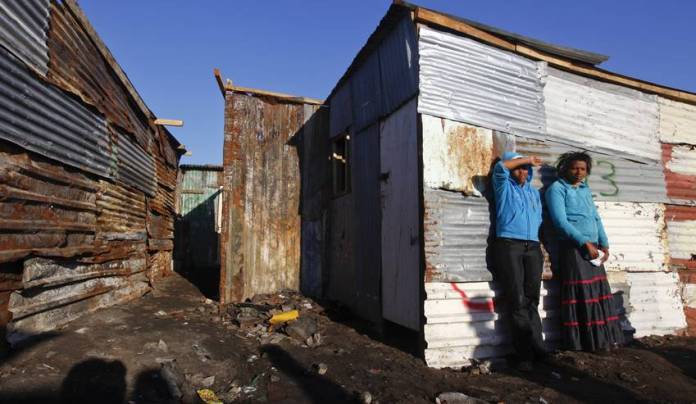The gap between the rich and poor in South Africa is growing, high wealth inequality and low intergenerational mobility inherited from apartheid saw the disparities being passed down from generation to generation.

The South African government has expressed disappointment with its track record of transforming the country after a World Bank report showed that inequality has deepened since the dawn of democracy, with the country being the most unequal society in the world.
The results of the probe, which assessed poverty and inequality from 1994 to 2015, revealed that only one in four South Africans could currently be stably considered as either middle class or upwards in terms of means.
The report which was Presented on Tuesday to Minister for Planning, Monitoring and Evaluation Nkosazana Dlamini Zuma, was commissioned in 2016 as a collaborative initiative by the bank and the country’s institutions, including Statistics SA.
The report was aimed at identifying key drivers, challenges and policy actions for socio-economic transformation in the country.
Highlights Of The Report
The World Bank’s Dr Paul Noumba Um said more than 75% of South Africans slipped into poverty at least once between 2008 and 2015, with the poverty headcount being higher in rural areas.
“Half of South Africans during the 2008 to 2014/15 period were considered chronically poor or having average consumption below the upper bound poverty line. At least 78% of South Africans were in poverty at least once during this period,” Um said.
Read Also: South Africa Ranked As One Of the Most Miserable Countries In The World
He said despite the overall positive trend on poverty reduction between 2006 and 2015, poverty had increased between 2011 and 2015, with at least 2.5million more South Africans slipping into poverty.
“About 40% of South Africans lived below the lower bound poverty line in 2015, up from 36.4% in 2011,” Um said.
With a Gini coefficient of 0.63 in 2015, the report described South Africa as the most unequal country on earth. (Gini coefficient is a measure of statistical dispersion intended to represent the income or wealth distribution of a nation’s residents).
The report said high wealth inequality and low intergenerational mobility inherited from apartheid saw the disparities being passed down from generation to generation, with signs showing that the situation was worsening.
Read Also: Only 5 Percent of Black People In South Africa Successfully Complete University – Report
While the report stressed that education and skills were the main avenue to address the inequalities – as many poor South Africans were unemployable and unskilled – it stressed that wealth inequality was much higher than income inequality.
“The bottom 50% of households account for only 8% of incomes, 5% of asset values and 4% of net wealth. Conversely, the top 10% of households account for 55% of household incomes, 69% of total household asset values and 71% of household net wealth,” the report said.
It said the government would also not achieve its National Development Plan goals of eliminating poverty and reducing inequality by 2030.
Dlamini Zuma said the findings, though not surprising, were disappointing, adding that the current administration would have to pull its socks up.
“Clearly we have not done very well in these triple challenges of poverty, unemployment and inequality. We should now make skills a priority because, as the study shows, they will assist in reducing these challenges.”
She said the government would also have to intervene in changing the structure of the economy through radical economic transformation.
“I think we need to change gear. We need to reset the button and look at the radical socio-economic transformation, at access to land, we must look at the skills revolution and industrialisation, both in terms of manufacturing and technology.”
Source: iol.co.za

